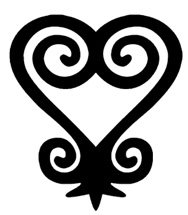Three years ago this month, our lives were turned upside down. We hunkered down in our homes to stop a menacing pandemic in its tracks. “Two weeks to flatten the curve,” we were initially told. So we did the unthinkable, for our safety and the safety of others, and went into hibernation mode, venturing outside only if we stayed six feet away from others. The isolation seemed perilous and unending. Two weeks turned into two months, and of course, the rest is history.
Fast forward to today and we are seemingly back to “normal.” Our children are playing on multiple sports teams, taking music lessons, or participating in scouts, or all three. On top of school and homework, evening schedules are filled, and weekends are spent traveling from tournament to tournament. There is little time for family meals, movie nights, board games, reading, hikes, or just talking. We have become, once again, over-tasked, over-worked, over-tired, and over-stressed. What happened and how did we get here?
Sankofa, the symbol above, was created by the Akan tribe of Ghana. It depicts a bird which is both moving forward to the future and looking back at the past. The word Sankofa means “to retrieve” and it suggests that in order to make positive progress in the future, we need to remember the past. While many of the memories from the previous three years are unpleasant, I believe there were some positive elements that are worth hanging on to. Likely no one wants to return to a full-fledged quarantine, but I can’t help but think it might be nice to have even just a “two-day” hiatus from the busyness that has consumed us today. Could we reserve a weekend to stay home and be fulfilled by the company of our family – to enjoy “the present moment” without feeling the pressure of deadlines and schedules and chores? Rather than thinking about another “to do list,” could we learn how to embrace the silence, the slowness, the stillness?
The anxiety many of our children are feeling today will only increase if they continue on this current path. Terry Hershey, author, Episcopalian pastor, and public speaker suggests that we live from the fear of scarcity, rather than realizing that who we are and what we do is sufficient. He says, “We have forgotten the gift of enough.”

